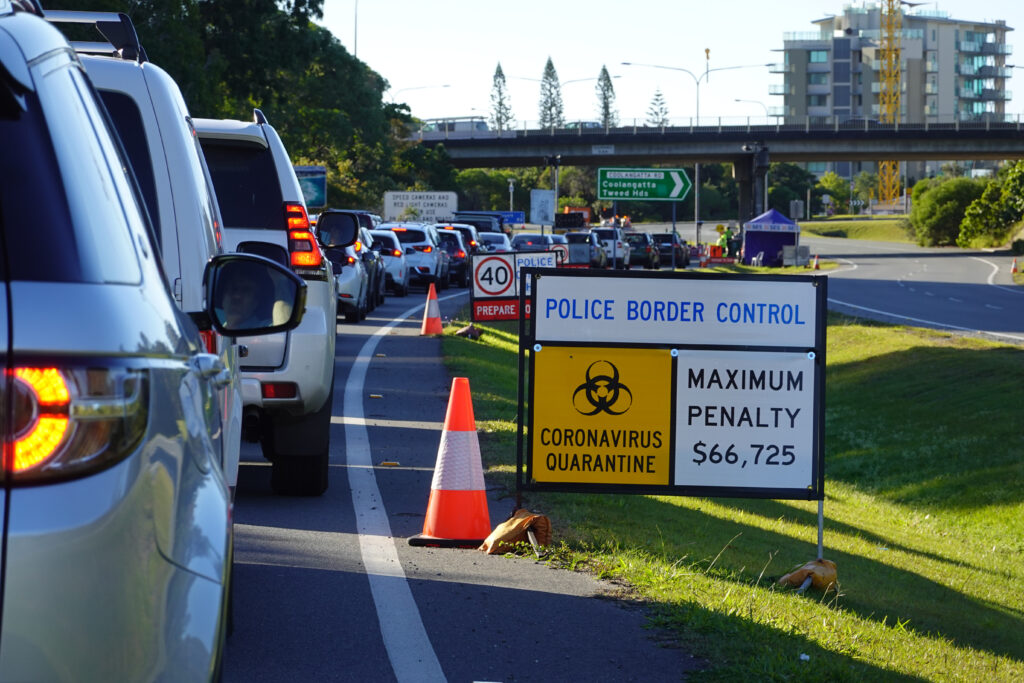All Australian governments need to improve their pandemic planning to avoid setbacks faced by researchers examining the early spread of COVID-19.
A study from the Doherty Institute has found Australia must improve its pandemic preparedness, following an evaluation of research conducted at the start of the COVID-19 pandemic.
The researchers, who conducted the first Australia-wide study into household transmission of COVID-19, found that differences in the presentation of epidemiological data cost them vital time.
“We found the way data was collected by jurisdictions was not harmonised, so we had data from multiple sources which did not fit together,” Adrian Marcato, co-author and PhD candidate at University of Melbourne told InSight+.
“We really need to be thinking about getting ahead of the next curve now.”
The evaluation found that while the Australian Government had some preparedness plans in place before 2020, it could have done more to be ready for COVID-19.
“While the government had a plan, it was not quite ready,” Marcato said.
“There were protocols in draft form. Having a protocol is not everything; having a protocol that works is vital … Having protocols and approvals in place would [also] enable culturally appropriate data collection for First Nations peoples and people at greater risk of disease.”

Mr Marcato said it was only because of the Doherty Institute’s relationship with the Commonwealth over many years that their initial research was able to go ahead.
His initial research, funded by the Australian Government Department of Health, examined the severity and household transmission dynamics of COVID-19 between April and October 2020 in 96 households in New South Wales, Victoria, Western Australia, South Australia, and Queensland.
The study used the World Health Organization’s first few X cases and contacts (FFX) investigation protocol for COVID-19.
It found that the household secondary attack rate (HSAR), defined as the proportion of household contacts that were eventually infected, increases with household size. It also found that children were relatively more susceptible to infection compared with adults when exposed and were also less infectious than their adult counterparts.
“We note that our results differ from similar household transmission studies including studies based on the WHO UNITY protocols, such as the FFX study conducted in the [United Kingdom], which estimated a higher base HSAR that decreased with increasing household size,” the researchers wrote in The Lancet Regional Health Western Pacific.
They noted they encountered “many challenges in the planning and implementation phases with respect to logistics, ethics, governance and data management.”
Their evaluation of the research has recently been published in BMC Public Health, finding that future preparedness should aim to formalise partnerships between health departments and researchers.

“At the beginning of the pandemic when you don’t know how severe it’s going to be, how transmissible it’s going to be, these studies can provide incredible insight,” Mr Marcato said.
“This kind of study [using the FFX protocol] can provide heaps of information into a range of things, such as the effectiveness of vaccines or antivirals, which can [have] huge implications for treatment.”
Mr Marcato said improved planning will help doctors, who are on the frontline of the pandemic response.
“Having that information available in the early stages can really help improve patient care,” he said. “Rather than relying on research to come from hospitalisation data or overseas, it can come from a general surveillance system, which everyone contributes to together.”
The evaluation also calls for the development of pre-approved FFX protocols ahead of the next pandemic to improve logistics, ethics, governance, and data management.
The FFX investigation was a partnership between the Australian Government Department of Health and Aged Care, state and territory health departments and the Australian Partnership for Preparedness Research on Infectious Disease Emergencies (APPRISE) team based at the University of Melbourne and the University of Adelaide.
Subscribe to the free InSight+ weekly newsletter here. It is available to all readers, not just registered medical practitioners.

 more_vert
more_vert